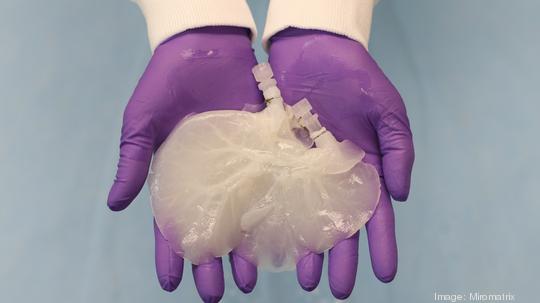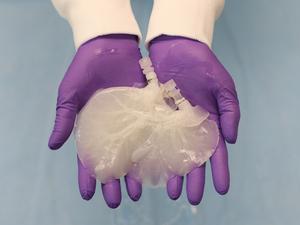
Miromatrix Medical Inc. marked a major milestone this month as it completed the first ever implant of a bioengineered liver into a large animal.
The Eden Prairie-based biotech company engineers whole organs through a process known as decellurization and recellurization. Put simply, the cells are rinsed out of a pig liver or kidney. Then, human cells are added into the blank organ in a bioreactor.
The transplant was part of a preclinical study with researchers at Mayo Clinic to assess the functionality of a bioengineered liver. The results showed that pigs receiving the liver that contained human and pig cells maintained liver functioning, along with blood flow.
The successful nature of the transplants demonstrates the efficacy of bioengineered whole organs using the company's technology.
CEO Jeff Ross said the company's June initial public offering and its Series C fundraising in August raised a total of $70 million. That influx of cash will allow Miromatrix to focus on patients who will benefit from its technology.
Ross said the company's mission is to eliminate the organ transplant waiting list, with the ultimate goal being to bioengineer an organ that doesn't need immunosuppression.
Over 100,000 people in the U.S. are waiting for life-saving organ transplants with more than half expected to die before receiving one.
Currently, Miromatrix (NASDAQ:MIRO) is on track to start a clinical trial of its external assist liver in the second half of 2022. This external liver would function in the same manner as kidney dialysis machines, Ross said.
Theoretically, its technology could be used to transplant any organ in the human body, but the company is instead focusing on kidneys and livers.
Livers are a point of emphasis because there's no alternative therapies to a liver transplant.
"There's no drugs, there's no devices, there's no dialysis for liver-failure patients," Ross said. "It's either transplant, and there's only 1,000 of those annually in the U.S., or you're unfortunate not to have access to a liver."
While patients facing kidney failure have the opportunity to do dialysis, clinical outcomes are poor, as 50% of patients die within five years of starting the treatment, Ross said.
After its human clinical trials are cleared, Ross envisions a manufacturing process that could grow 100,000 organs at a time throughout multiple warehouses.







